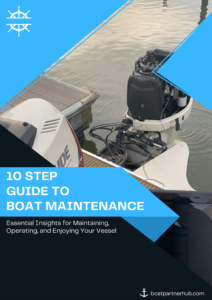Blog
Weather Watch: A Boater's Guide to Understanding and Navigating Changing Conditions

Seafaring Safety: Navigating Changing Weather Conditions for Boaters
If you are a boating enthusiast, you know that understanding and navigating changing weather conditions is essential for a safe and enjoyable experience on the water. As a seasoned content writer well-versed in SEO, I’m here to provide you with a comprehensive guide on how to stay informed about weather patterns, interpret forecasts, and take appropriate precautions to ensure smooth sailing throughout your boating adventures.
1. Why Weather Awareness Matters for Boaters
Before we delve into the specifics, let’s discuss why weather awareness is crucial for boaters. Sudden changes in weather can create hazardous situations on the water, such as rough seas, strong winds, thunderstorms, and even hurricanes. Being caught unprepared can jeopardize your safety and the safety of your passengers.
2. Using Technology to Your Advantage
With the advancements in technology, accessing weather information has never been easier. Numerous weather apps and websites can provide real-time updates on current conditions and forecasts specific to your location. Popular apps like Weather.com and AccuWeather offer intuitive interfaces and customizable features, making it convenient for boaters to plan ahead.
3. Understanding Weather Patterns
To make informed decisions, it’s essential to understand weather patterns and the factors that influence them. Learn about high-pressure systems, low-pressure systems, and how they interact to create weather changes. Moreover, familiarize yourself with the effects of temperature, wind direction, and humidity on weather conditions.
4. Interpreting Marine Forecasts
Marine forecasts are tailored to boaters and provide critical information for different water bodies. When reading marine forecasts, pay attention to wind speed and direction, wave height, visibility, and any advisories issued by the National Weather Service. Understanding the terminologies used in forecasts will help you grasp the potential risks.
5. Monitoring Local Weather Stations
While relying on marine forecasts is essential, local weather stations can offer valuable insights specific to the area you’ll be boating in. Tune into local TV channels or radio stations for updates and emergency alerts. Additionally, follow official social media accounts of weather agencies for timely notifications.
6. Establishing a Safety Checklist
Prior to setting sail, establish a comprehensive safety checklist that includes monitoring weather conditions. This checklist should cover essential items like life jackets, communication devices, emergency flares, first aid kits, and a well-maintained boat. A well-prepared boater is better equipped to handle unexpected weather changes.
7. Seek Expert Advice
As a responsible boater, it’s crucial to know your limits and recognize when to seek expert advice. Consulting with experienced captains or local boating communities can provide valuable insights into specific weather challenges faced in your region. Learning from others’ experiences can enhance your understanding of weather patterns.
8. Respect the Power of Mother Nature
Even with all the information and precautions, nature can be unpredictable. Always prioritize safety over adventure. If severe weather is forecasted or encountered during your boating trip, consider postponing your journey or seeking a safe harbor until conditions improve.
9. Continuous Learning
Weather patterns and climate change are ever-evolving. Make a habit of continuous learning to stay updated with the latest developments in weather forecasting. Attend workshops, read books, and participate in online forums to expand your knowledge.
Conclusion
In conclusion, being a responsible boater goes hand in hand with being weather-aware. Utilize technology, interpret forecasts, and gather local insights to make well-informed decisions. Prioritize safety, and never underestimate the power of nature. By doing so, you can confidently navigate changing weather conditions and enjoy your boating experiences to the fullest. Happy boating!


